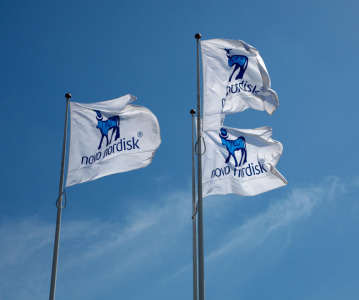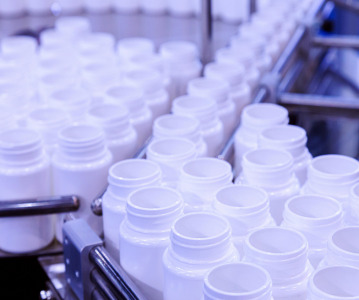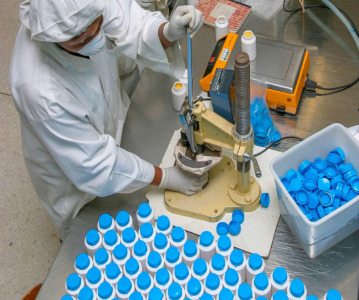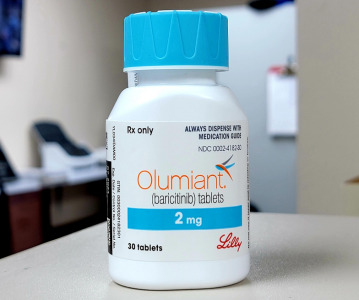US government signs $354 million generics and API manufacturing contract with Phlow

Pharma start-up will use continuous manufacturing to shore up supply chain of essential medicines
The US government has signed a USD 354 million contract with pharma start-up Phlow Corporation to manufacture generics and active pharmaceutical ingredients (APIs) needed for drugs in short supply, including COVID-19 treatments, in a move to create the nation’s first strategic stockpile of key ingredients and reduce its dependence on overseas supply.
The four-year contract, awarded by the Biomedical Advanced Research and Development Authority, could be extended up to USD 812 million over ten years, making it one of the largest awards in BARDA’s history. Under the terms of the agreement, Phlow will lead a team of private sector entities that includes API and intermediates manufacturer Ampac Fine Chemicals, Civica Rx and the Medicines for All Institute.
Phlow said it has started manufacturing chemical precursor ingredients, APIs and finished dosage forms for over a dozen medicines to treat hospitalized patients with COVID-19-related illnesses.
“Many of these medicines are in shortage and have previously been imported from foreign nations,” the company said in a statement.
Phlow said it had also delivered over 1.6 million doses of five generic drugs used to treat COVID-19 to the US Strategic National Stockpile, including medicines to sedate patients requiring ventilator support, painkillers and antibiotics.
The company said it is also building the US’ first Strategic API Reserve (SAPIR), a long-term stockpile to secure key ingredients.
The decision to award the contract to a new company rather than an established manufacturer has raised eyebrows.
On its website, Virginia-based Phlow markets itself as a solution to a “broken” US pharmaceutical supply chain “dangerously dependent on foreign suppliers.” It says traditional batch manufacturing, which it describes as a multi-step, lengthy process that involves the use of large-scale, labour-intensive equipment, has led to API production being mainly centred in China and India, where labour costs are low.
The company says all its pharmaceutical products will be manufactured in the US by continuous manufacturing, which it describes as a modern process “that maximizes throughput, increases productivity, and lowers labour requirements.”
Phlow’s business model chimes with the Trump administration’s desire to refocus API manufacturing in the US, particularly as the current coronavirus pandemic has placed greater emphasis on security of drug supply.
“For far too long, we've relied on foreign manufacturing and supply chains for our most important medicines and active pharmaceutical ingredients while placing America's health, safety, and national security at grave risk,” said Peter Navarro, director of the White House Office of Trade and Manufacturing Policy, commenting on the deal.
In April, Phlow signed a USD 6 million contract from the US Department of Health and Human Services to secure a supply of medications and APIs at risk of shortage due to the COVID-19 pandemic.
Non-profit pharma firm Civica Rx will manufacture the finished dosage product on the same site as Phlow's precursor and API production and distribute via a network of more than 1,200 hospitals.
Related News
-
News Women in Pharma: Moving beyond discussions and into best practice at CPHI Milan
In this second CPHI Milan special of our monthly series, we cover the key takeaways from the Diversity & Wellbeing track held on October 10, 2024. -
News AstraZeneca invests in AI collaboration for cancer drug trials
The British-Swedish pharmaceutical giant is partnering with biotechnology firm Immunai Inc to increase the efficiency of some cancer drug trials. -
News Ozempic and Wegovy prices questioned as Novo Nordisk faces US Senate hearing
The CEO of Novo Nordisk was grilled during a US Senate committee hearing on September 24, 2024, in which the exorbitant prices of the Danish company’s blockbuster drugs Ozempic and Wegovy were called into question. -
News The BIOSECURE Act: implications for the pharma supply chain
On September 9, 2024, the US House of Representatives voted to pass the bill titled the BIOSECURE Act (the Act), which lists several Chinese companies in the pharmaceutical supply chain. The Act will prohibit American companies from contracting or doin... -
News On Track at CPHI Milan: Thermo Fisher Scientific Track Sponsor interview
With CPHI Milan just around the corner, we sat down with some of the sponsors for this year’s conference tracks to discuss the most pressing topics in pharma. -
News CPHI Milan Speaker Spotlight: Pharma Manufacturing and Localisation in Africa
In the run-up to CPHI Milan, we sit down with some of the experts and thought-leaders speaking at this year’s conferences. -
News US BIOSECURE Act passed by US House of Representatives
The controversial act, which has already impacted several foreign companies operating in the US, was passed by the House of Representatives on September 9, 2024. It is now headed for the US Senate before it can be signed into law by President Joe Biden... -
News Eli Lilly licenses rheumatoid arthritis manufacturing in Africa
American pharmaceutical company Eli Lilly has signed a partnership with Egyptian organisation Eva Pharma to localise manufacturing of rheumatoid arthritis treatments in Africa.
Position your company at the heart of the global Pharma industry with a CPHI Online membership
-
Your products and solutions visible to thousands of visitors within the largest Pharma marketplace
-
Generate high-quality, engaged leads for your business, all year round
-
Promote your business as the industry’s thought-leader by hosting your reports, brochures and videos within your profile
-
Your company’s profile boosted at all participating CPHI events
-
An easy-to-use platform with a detailed dashboard showing your leads and performance
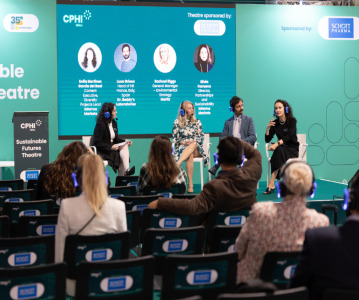
.png)
